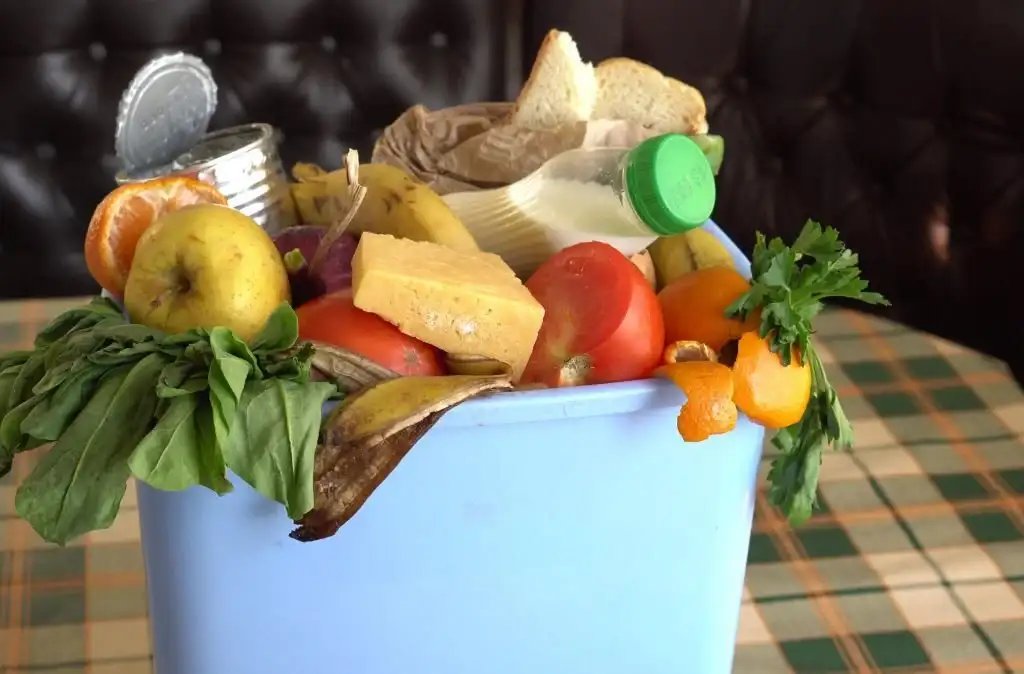Hi there! Have you ever heard of dumpster diving? It’s a practice that a lot of people are doing these days, and it’s both more common and more accepted than you might think. It can be a great way to get free food and even more than that.
Today, I’m going to be talking about dumpster diving at grocery stores. It’s a great way to save money and help out the environment. I’ll go over the basics of dumpster diving, the benefits it can bring, and the potential dangers that you should be aware of. So if you’re interested in learning more, keep reading!
I’m sure you have heard of dumpster diving, but do you know what it involves? Well, in this introduction, I’ll give you a brief explanation of dumpster diving at grocery stores, highlight its potential benefits and considerations, and discuss the types of food you can find. Let’s get started!
Dumpster Diving at Grocery Stores
Having discussed the potential benefits of dumpster diving, let’s take a closer look at what dumpster diving at grocery stores entails. Dumpster diving at grocery stores is a form of urban foraging in which individuals scavenge through the store’s dumpsters for food and other items that are or may soon be discarded.
It is often done with the intention of reducing waste and recovering items that still have value. Dumpster diving at grocery stores can be a great way to find food that’s still perfectly good to eat, as well as other items that you need. It can also be a great way to save money and help the environment at the same time.
Of course, there are some considerations to bear in mind when dumpster diving at grocery stores. It is important to be mindful of your local laws and regulations, as well as the risk of injury or illness from handling food that may not have been stored or handled in safe conditions. Additionally, it’s also important to be respectful of store employees and other customers, as well as any property, when dumpster diving.
Overall, dumpster diving at grocery stores can be a great way to reduce food waste, help the environment, and save money. Just be sure to be safe and respectful when doing so.
Potential Benefits and Considerations at Grocery Stores
When considering dumpster diving at grocery stores, it’s essential to weigh both the potential benefits and considerations of this activity:
Benefits:
- Economical: Dumpster diving can significantly lower grocery bills by salvaging edible food that can no longer be sold.
- Reduction of Food Waste: By repurposing discarded food items, dumpster diving helps reduce the amount of food that ends up in landfills, contributing to a more sustainable environment.
- Resourcefulness: It promotes resourcefulness and creativity by finding uses for items that might otherwise be discarded.
- Community Building: Some communities have established networks and organizations around dumpster diving, fostering a sense of community and shared values.
Considerations:
- Legal Restrictions: Dumpster diving may be illegal in some jurisdictions, so it’s crucial to understand local laws and ordinances before engaging in the activity.
- Safety Hazards: There is a risk of encountering sharp objects, hazardous chemicals, or wild animals in dumpsters. It’s essential to exercise caution and wear appropriate protective gear.
- Social Stigma: Dumpster diving may be viewed negatively by some, who may perceive it as unethical or unsanitary. It’s important to be aware of potential social implications.
- Health Risks: Consuming food from dumpsters carries inherent health risks, as it may have been contaminated or spoiled. It’s vital to inspect food carefully and prioritize safety.
Dumpster diving can offer significant benefits in terms of cost savings and environmental impact. However, it’s essential to be aware of potential legal, safety, and social considerations before engaging in the activity. With proper precautions and research, dumpster diving can be a safe and sustainable way to save money and reduce waste.
Is It Legal to Dumpster Dive at Grocery Stores?
Dumpster diving at grocery stores is generally legal in many places, as long as you’re not on private property. Most laws allow dumpster divers to take food that’s not damaged or spoiled, and many stores have signs encouraging it. However, it’s crucial to respect the store’s property, follow any store policies, and be aware of local laws and regulations. Some states or cities may have laws against taking items from dumpsters without the owner’s permission, so it’s essential to check with local authorities or the specific store. Responsible dumpster diving involves being respectful, not leaving a mess, and only taking what’s appropriate.
Best Time to Dumpster Dive at Grocery Stores
- Time of Day: Late evenings are generally the best time to go dumpster diving, as stores typically dispose of their most recently expired goods by then, making it easier to find items with a considerable shelf life. Additionally, there may be less competition at this time, as fewer people are out diving.
- Store Schedule: Consider the store’s schedule when planning a dive. Some stores may dispose of expired items earlier or later than others, and knowing these details can help you find the right time to dive.
- Waste Disposal Practices: Be aware of the store’s waste disposal practices, as some stores may throw out all their expired items at once, while others may do so on a rolling basis. This information can be helpful in planning your dive.
- Avoid Contamination: Avoid items with obvious signs of contamination, such as mold or exposure to the elements for too long. Also, be aware of the store’s health codes, as they may have specific safety requirements for expired items.

You might be interested: Dumpster Diving at Malls: Everything You Need to Know
What to Look for While Dumpster Diving at Grocery Stores?
When it comes to dumpster diving at grocery stores, it’s essential to know what to look for. Here’s a checklist of items to search for while dumpster diving:
- Food in Original Packaging: Look for items like canned goods, frozen meals, and various snacks that are still sealed and unopened. These items are often still good to eat and can be great for stocking up.
- Fresh Produce: Check for fruits and vegetables that are still in good shape. Many stores discard produce that is too ripe, but as long as it hasn’t been sitting in the dumpster for too long, it should still be safe to eat.
- Non-Perishable Items: Items like pasta, rice, and other non-perishable foods can often be found in good condition in grocery store dumpsters.
- Toiletries and Household Items: Some grocery stores also throw out toiletries, cleaning supplies, and other household items that are still usable.
- Personal Safety Items: Don’t forget to bring gloves, a headlamp or flashlight, and any other personal safety items you might need while diving.
By keeping this checklist in mind, you can make the most of your time and find valuable items while dumpster diving at grocery stores.
Checklist of Items to Search for While Dumpster Diving at Grocery Stores?
Certainly! Here’s a checklist of items to search for while dumpster diving at grocery stores:
- Sealed Food Items: Look for canned goods, frozen meals, snacks, and other food items that are still in their original packaging and have not been opened. These items are often still safe to consume and can be great for stocking up.
- Fresh Produce: Check for fruits and vegetables that are still in good condition. While some produce may be too ripe for sale, it can still be safe to eat if it hasn’t been in the dumpster for too long. Take advantage of discarded produce to create delicious meals.
- Non-Perishable Foods: Search for non-perishable items like pasta, rice, grains, and canned goods that have not expired and are still in usable condition.
- Toiletries and Household Items: Some grocery stores may dispose of toiletries, cleaning supplies, and other household items that are still usable. Look for these items if you’re in need of household essentials.
- Personal Safety Gear: Don’t forget to bring gloves, a headlamp or flashlight, and any other necessary personal safety equipment to protect yourself while diving.
By keeping this checklist in mind, you can efficiently navigate the dumpster and maximize your chances of finding valuable items during your grocery store dumpster diving expeditions.
Emphasize the Importance of Safety and Hygiene at Grocery Stores.
Safety and hygiene are paramount when it comes to dumpster diving, especially at grocery stores. Here’s why:
- Protective Gear: Wear gloves and a face mask to protect yourself from potential hazards. This will not only keep you safe but also prevent food from further contamination.
- Flashlight: A flashlight helps you identify items and check for signs of spoilage, mold, or pests. It’s a crucial tool for safety and to ensure you’re taking only what’s safe to consume.
- Hand Hygiene: Always wash your hands thoroughly after dumpster diving. This reduces the risk of illness and cross-contamination.
- Proper Disposal: Dispose of any spoiled or contaminated food properly to prevent further issues.
By prioritizing safety and hygiene, you can make sure your dumpster diving experience is both successful and safe.
Do Grocery Stores Throw Away Food?
Well, it’s a common concern that grocery stores throw away food, but that’s not always the case. Grocery stores usually handle unsold or expired items in different ways – donating them, selling them at reduced prices, or even repurposing them. Plus, there can be legal repercussions for grocery stores if they don’t properly dispose of unsold or expired items.
You might be interested: Dumpster Diving at Petco: Everything you need to know
Environmental Impact of Dumpster Diving at Grocery Stores
Dumpster diving, often overlooked as a fringe activity, can actually contribute significantly to reducing food waste and its environmental impact. In the United States alone, up to 40% of food produced ends up in landfills. This discarded food generates methane gas, a potent greenhouse gas that contributes to climate change. By diverting this food from landfills and consuming it instead, dumpster divers play a role in mitigating this environmental issue.
Furthermore, grocery stores often discard large amounts of food due to strict sell-by-date policies, even if the food is still edible. By rescuing this food and donating it to food banks and pantries, dumpster divers can provide much-needed sustenance to those in need, thereby reducing food insecurity and enhancing community well-being.
Dumpster diving at grocery stores can be a sustainable and environmentally friendly practice that helps reduce food waste, mitigate greenhouse gas emissions, and address food insecurity. By rescuing edible food from landfills, dumpster divers can make a positive impact on both the environment and their communities.

You might be interested: Dumpster Diving at Gamestop: Everything you need to know
How much money can you make from dumpster diving at Grocery stores?
The amount of money one can make from dumpster diving at grocery stores varies greatly depending on several factors. These include the quality and quantity of the items found, the condition of the items, and the market demand for those items. Some individuals have reported making anywhere from $300 to $900 per month from dumpster diving at grocery stores. However, it’s important to note that this is not a guaranteed income, and the actual earnings can fluctuate significantly from month to month. Additionally, the legality and ethical considerations of dumpster diving should also be taken into account when considering the potential earnings from this activity.
Tips for Successful Dumpster Diving at Grocery Stores
- Research Stores: Start by researching the grocery stores in your area to find out which ones are most likely to have the resources you’re looking for. Ask around your community to see which stores are the most generous and consistent with their dumpster finds.
- Building Relationships: Building a relationship with store employees can be invaluable. They can provide information about when dumpsters are full and emptied, as well as any donation policies. A friendly relationship with employees can also increase your chances of getting extra donations.
- Stay Organized: Keep track of what you find and what you donate to a food bank or shelter. This helps you know what you have and what you need, especially if you’re setting a budget for yourself.
By following these tips, you can maximize your success and minimize waste while dumpster diving at grocery stores.
Final Thoughts
Well, now that you’ve got the basics of successful dumpster diving at grocery stores down, it’s time to wrap it all up and provide some final thoughts.
Firstly, I’d like to reiterate that dumpster diving is a great way to get free food, but it’s important to do it safely and responsibly. Not only is it important to take care of yourself and your health by wearing gloves and being aware of your surroundings, but it’s also important to respect the property of the store you’re visiting. It’s important to always leave the area clean and never take more than what you need.
Secondly, I’d like to emphasize the importance of being mindful of your impact on the environment. Dumpster diving is a great way to reduce food waste and save money, so it’s worth considering if you’re able to make it work for you.
Finally, I’d like to encourage everyone to keep their eyes open for opportunities. You never know when you might stumble across a dumpster with amazing finds, so it’s always worth checking out!
At the end of the day, dumpster diving is a fantastic way to save money, reduce food waste, and get your hands on some great finds. With these tips, you should be well on your way to becoming a successful dumpster diver!
Conclusion
Dumpster diving at grocery stores can be a great way to find usable items, reduce the environmental impact of waste, and save money. It’s important to remember, however, that it’s not always legal to do so, so if you’re considering dumpster diving, make sure to check the laws in your area and be aware of the potential hazards. With a bit of knowledge and preparation, you can successfully and safely dumpster dive at grocery stores and save yourself some money in the process.
You might be interested: Dumpster Diving at Costco: Everything You Need to Know

Greetings, eco-conscious explorers! I am Arjun Bandari, a seasoned Dumpster Diving enthusiast with over a decade of expertise in uncovering hidden treasures amidst the discarded. My journey into this unconventional lifestyle began in New York, fueled by a passion for sustainability and a desire to challenge the norms of our throwaway culture.
With a bachelor’s in Enviromental Health and Safety, I seamlessly blend academic insights with practical experiences to navigate the world of Dumpster Diving. Over the years, I’ve become a recognized figure in the sustainable living community, sharing my discoveries and insights through workshops, community outreach, and various online platforms.
My commitment to promoting eco-friendly practices has garnered attention from local and regional media, earning me featured spots in publications that highlight the environmental impact of Dumpster Diving. As an advocate for responsible waste management, I have been honored with awards recognizing my contributions to the field.
In addition to my hands-on experiences, I’ve extended my reach through various published works, shedding light on the untapped potential within discarded items. Whether it’s repurposing furniture, salvaging electronics, or sharing practical tips for fellow Dumpster Diving enthusiasts, I am dedicated to inspiring a conscious and sustainable way of living.
Join me on this exciting journey as we redefine the narrative around waste, discover hidden gems, and collectively contribute to a greener, more sustainable future. Together, let’s dive into the world of Dumpster Diving and uncover the beauty beneath the surface of our disposable society.

